Fake ‘Actor’ Accused of Abducting Baby in Movie Casting Hoax

OGOJA, Nigeria—His skin was said to be glowing, his hair neatly plaited, and his body well-built. He reportedly looked like a typical rich Nigerian entertainer, so when he showed up at a settlement for Cameroonian refugees in Nigeria claiming to be an actor in search of babies to cast in an upcoming movie, no one had reason to doubt him.
The man allegedly arrived at the Adagom refugee settlement in Ogoja, in Nigeria’s southeastern Cross River state, during the summer of 2019. The refugees who saw him there said that the so-called actor—who claimed to be from the state’s capital city of Calabar—had come with a bodyguard he introduced as a police officer, and recruited two Cameroonian boys living in the settlement to lead them to refugee mothers who were nursing newborn babies.
But this so-called actor never intended to “cast” the babies, according to several sources in the settlement who spoke with The Daily Beast. His appearance in the community was allegedly part of a well-planned operation by a cartel that traffics Cameroonian refugees.
In August 2019, this “Calabar actor,” whose real name no one seems to remember, showed up at the home of 20-year-old Claudia Amikwa, a resident of the Adagom settlement. Amikwa said he asked to feature her 10-month-old son in an upcoming movie he claimed he was producing in Calabar.
Amikwa said she was excited by the prospect of earning money to care for her son in a community where refugees struggle to find food and sanitation facilities. She was eager to negotiate a fee and modalities for the release of her son, but was told to wait a few days before having those discussions with his team.
“He took a photograph of my son and gave me 1,000 naira (about $2) for welcoming him,” Amikwa told The Daily Beast. “He then took my phone number and promised to call whenever he was ready to return.”
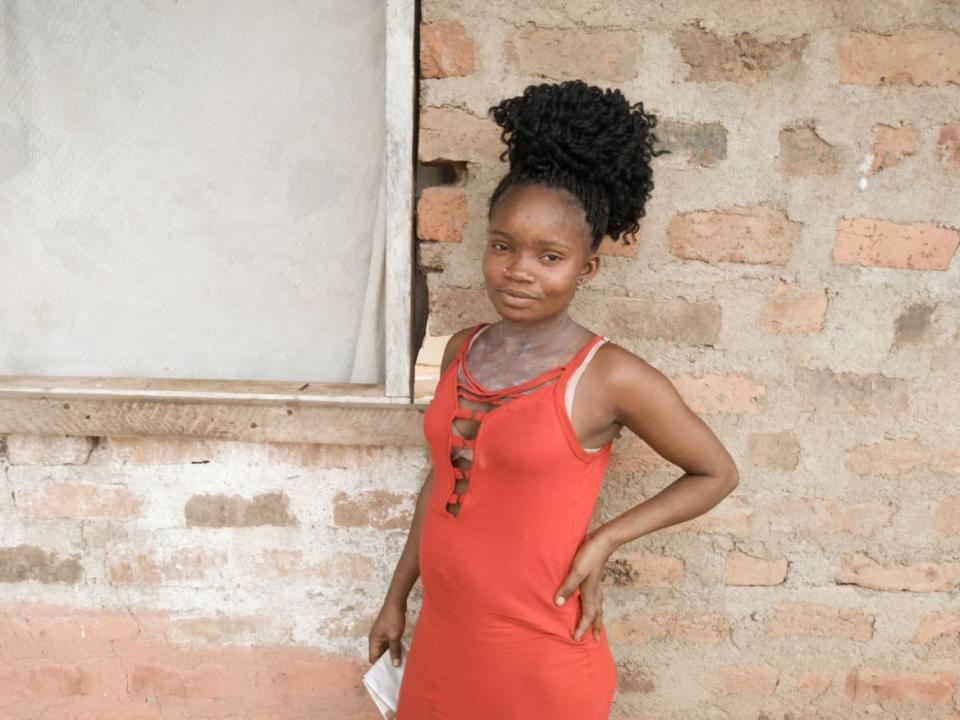
Claudia Amikwa was just 20 years of age when she lost her 10-month-old son in 2019 to a so-called actor who traffics babies. A few months later Stan Wantama offered her as a maid without her knowledge to a man who contacted him on Facebook.
Amikwa had ended up in the settlement in October 2018, after fleeing the fighting between the Cameroonian government forces and English-speaking separatists in the Cameroon town of Akwaya. She was heavily pregnant and had spent days hiding in a bush to avoid being killed in the conflict. Having left her family behind, the single young lady gave birth to her son just weeks after arriving at the refugee settlement.
On Aug. 12, 2019, about a week after he first met Amikwa, the actor returned to Ogoja and lodged at the popular Origin Guest House, not very far away from the settlement. He then allegedly called Amikwa via phone and invited her for a meeting at the hotel the following day. Amikwa said he insisted she come with her infant son so that the baby could be properly assessed. Upon arriving at the hotel, at about 7 p.m. on Aug. 13, Amikwa said the man drugged her and then fled with her child, leaving 70,000 naira ($169) beside her.
“When I got to his room, he offered me a bottle of malt [drink] that was already opened when I was served,” Amikwa said. “After taking the malt [drink], I fell asleep and woke up the next day to find an empty room and money sitting next to me. My son was nowhere to be found.”
Shortly after her son was taken, Amikwa went to the police and explained the incident to officers, who turned around and accused her of selling her baby. She spent eight months in incarceration before she was finally released and the case against her was dropped. But efforts by the police to recover the child have so far failed.
The Daily Beast met Amikwa in December to investigate reports of human traffickers targeting refugees in the settlement. She spoke through tears about her son, who she referred to as “my everything.” In her right palm was a folded white paper carrying the details of her son in black ink. It identifies him as Eric and states that he was born on Sept. 19, 2018. “I have no photo of my son, so this is all that reminds me of him,” she said of the document.
The Daily Beast was able to establish a link between the self-proclaimed actor and another alleged human trafficker who went by the name of “Stan Wantama” on Facebook.
An earlier investigation by The Daily Beast revealed that the Wantama Facebook account had been used to advertise female refugees in Adagom as maids. People wishing to “hire” them were asked to reach out for negotiations. His account was eventually disabled by Facebook 29 hours after I had reported his page to the company, but not before he had sold at least one of them into sexual exploitation, according to a survivor and family members of those who were targeted.
Teen Sold into Sex Slavery After Facebook Did Nothing for 24 Hours
One refugee in Adagom told The Daily Beast he had seen the “actor” at the settlement having a long conversation with Wantama a couple months before he even met Amikwa. In early June 2019, both men were said to have stood under a tree a few meters away from the football field at the settlement, talking to each other in low voices and becoming silent when anyone walked too close by them.
“They didn't want anyone to hear a word of what they were saying in English,” said Thomas Agbor, another refugee in the settlement had who fled the fighting in Akwaya in 2018. He told The Daily Beast he was present when Wantama met his close friend, the father of a young refugee, in a failed bid to recruit her as “a maid” in Calabar.
Stephen Agi, a professional motorbike driver, who was with Agbor at the settlement that day, also saw the actor and Wantama having a conversation.
“Looking at how intimate the two men were with each other, with one even placing his hand on the other person's shoulder, it was clear that they weren’t just meeting themselves but had known each other before then,” Agi told The Daily Beast. “Because they were careful not to let anyone listen to what they were saying, I suspected they were up to something.”
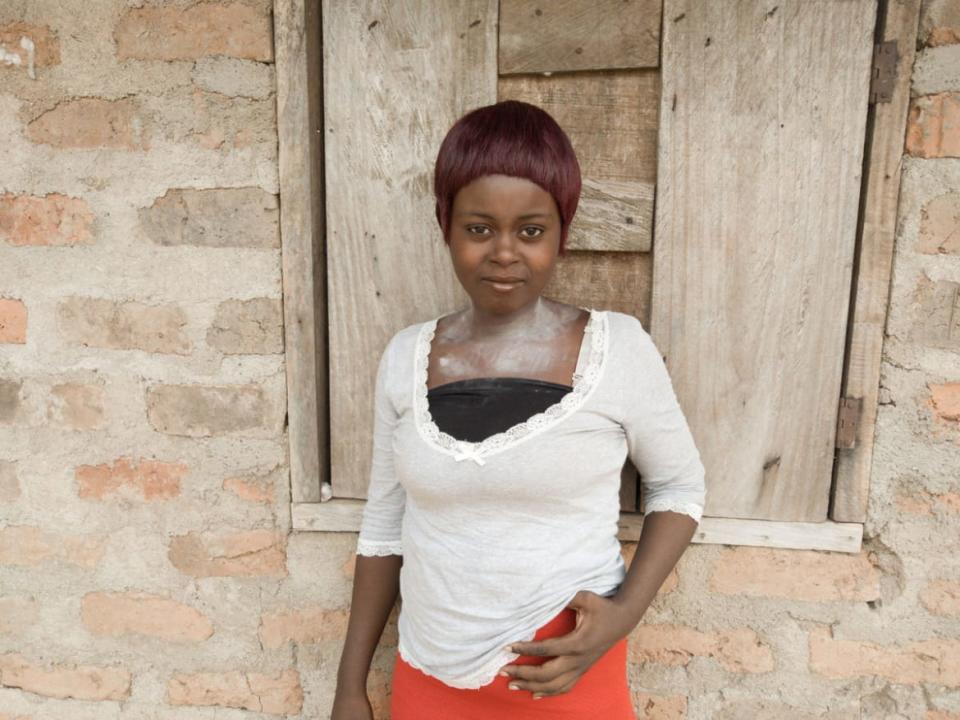
In June 2019, the self-proclaimed actor from Calabar tried to convince Shepheline Achuo to sell her days old to him but she refused. Months later, Wantama offered her as a maid to a man who contacted him on Facebook.
Hours after he was seen having a conversation with Wantama, the so-called actor allegedly visited the home of Shepheline Achuo, 19, another refugee girl who had given birth to a baby girl on June 6. He requested that her daughter be cast in his upcoming movie, according to Achuo. Unlike Amikwa, Achuo said she wasn't interested in negotiating. She later got fed up with his persistence and insisted he left her home, threatening to scream if he didn't walk away.
“He did all he could, including offering to pay me hugely to give him my child,” Achuo, a refugee from the southwestern Cameroonian town of Obonyi, told The Daily Beast. “But I had made up my mind never to give my child to any stranger.”
A booming baby black market is thriving across southeastern Nigeria. In the last decade, Nigerian authorities have rescued hundreds of babies held in “baby factories,” a common phrase in the country for places where women are held, impregnated, and forced to sell their babies to families looking to “adopt” them.
Parents of Kidnapped Nigerian Girls Tried to Pull Them Out of School Before They Were Taken
In Calabar, where the “actor” claims to come from, 24 pregnant women and 11 children were rescued from a baby factory last February. Reports of traffickers attempting to push babies abroad through the coastal city have been well-established, including a case of two women who were arrested by Nigerian security officials after trying to smuggle a 7-day-old baby girl to Cameroon in 2014.
In the baby trafficking business, “male children cost more than female children,” according to Comfort Agboko, a senior official at the National Agency for the Prohibition of Trafficking in Persons (NAPTIP), who recently served as the head of the agency's southeast office. Boys, she told The Daily Beast, could be sold for as high as 1 million naira (about $2,500) while girls are sold for up to 700,000 naira (about $1,700). That is the amount of money traffickers stand to gain by exploiting vulnerable refugees.
The so-called actor and Wantama could have collaborated by taking up separate responsibilities in Adagom but targeting the same families. While the former was apparently focused on trying to take babies, the latter allegedly sought to exploit the mothers of these babies through the use of Facebook, which changed its corporate name to Meta last year.
In the hours before the social media company took action against Wantama despite being notified of his alleged wrongdoings, Joseph Dominic, an accountant based in Calabar, saw his Facebook posts advertising girls on Dec. 30, 2019. He said he immediately reached him via email to request a maid. Wantama then sent two photographs—one was a picture of Amikwa, and the other was of Achuo—along with the full names of the girls in the photos.
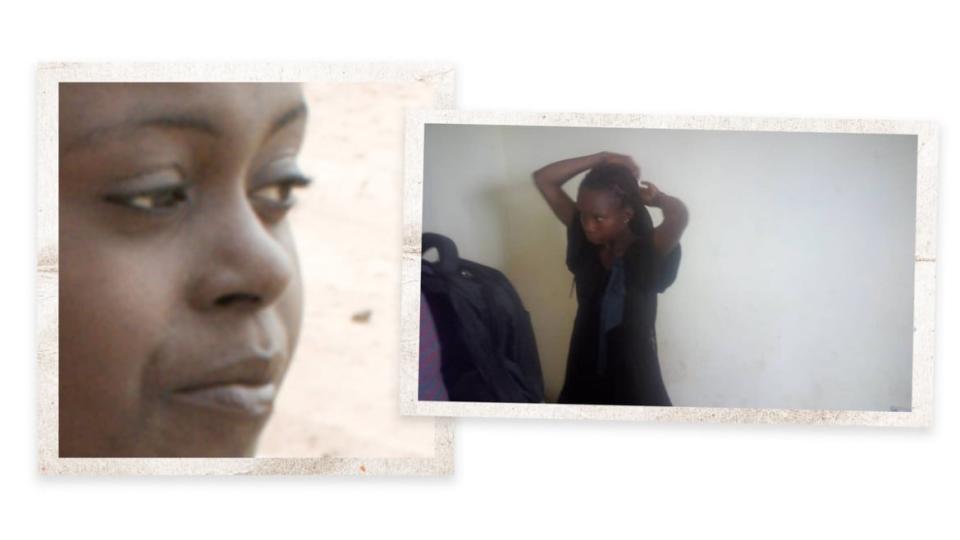
Photos of Achuo, left, and Amikwa sent by Wantama via email to Joseph Dominic, from traffickers who sought to hire a house maid.
In one of the photos, Amikwa stood in front of what seemed like a white painted wall, wearing a navy blue dress with her hands placed on her head. She was looking away from the camera and wasn’t posing like she knew someone was taking a photograph of her. The second photograph, of Achuo, was blurry. Like Amikwa, she was pictured looking away from the camera, seemingly unaware someone was taking a photograph of her.
When Wantama informed Dominic that the girls in the photographs were foreigners taking refuge in Nigeria, Dominic said he decided not to negotiate further. “No way was I going to hire a refugee from just anyone,” said Dominic. “He [Wantama] also sounded fraudulent when he said I couldn't speak to the girls before hiring them and that I had to pay him 30,000 (about $73) before he could bring any of them to me.”
When The Daily Beast showed Amikwa and Achuo the photographs Wantama had sent to Dominic during a visit to Adagom in December, both confirmed that they were in the photos, but neither recalled consenting to having their pictures taken. They said they’ve never met Wantama before, and no one has ever approached them about becoming a maid.
It’s possible that Wantama believed Amikwa and Achuo would accept jobs as “maids” without even asking them. About a dozen Cameroonian girls in Adagom who’ve worked as maids or laborers told The Daily Beast they have been contacted with job offers without ever having applied for one.
“Every girl in Adagom wants a job and so when we go out searching for jobs we don’t necessarily have to ask them whether they want to work or not,” said Innocent Agom, an agent in Ogoja who has helped dozens of refugees find menial work. “Most times, it is when we find jobs that we go look for the refugee that fits into the job description.”
Cameroon has been torn apart by violence since 2016, when the government brutally repressed peaceful protests by English-speaking citizens against perceived marginalization. The conflict led Anglophone separatists to declare Western Cameroon an independent nation in October 2017. Since then, some 3,000 civilians have been killed by government forces and other armed militias, and thousands more have taken shelter in settlements across eastern Nigeria. But overcrowding and funding gaps have made it extremely difficult for the United Nations High Commissioner for Refugees (UNHCR) to provide assistance to refugees, leaving them vulnerable to traffickers.
The UNHCR says it’s aware that some refugees in Adagom, which was built by the United Nations, have been offered jobs as domestic servants, only to find themselves exploited. Aba Opoku Mensah, a senior protection officer at the agency’s office in Ogoja, had no explanation as to why suspected cases of human trafficking weren’t reported to the authorities.
The UNHCR, she told The Daily Beast, only recently resolved to “work closely” with NAPTIP and Caritas Nigeri, the refugee agency’s protection partner in Cross River state, “to tackle human trafficking.”
On the other hand, the Cross River State Emergency Management Agency (CR-SEMA), which manages the settlement, said it is “not aware” that refugees are being trafficked in Adagom.
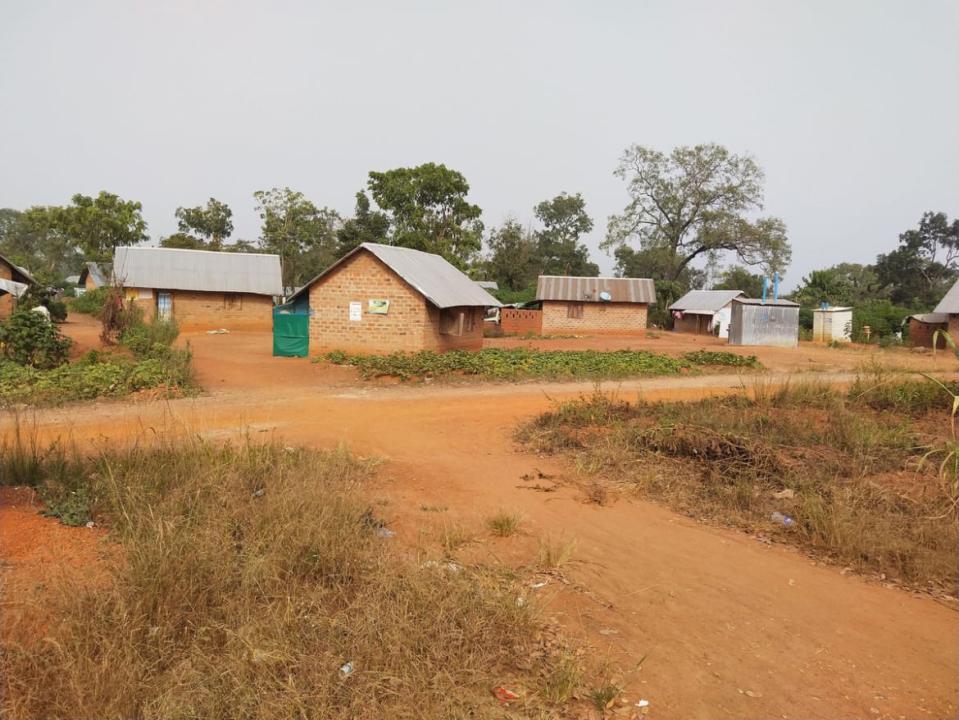
The UNHCR built dozens of shelters like these in the Adagom settlement for Cameroonian refugees.
“Honestly speaking, we haven’t received any reports of human trafficking in the [Adagom] settlement,” Princewill Ayim, director-general of CR-SEMA, told The Daily Beast. “We are definitely going to investigate [trafficking allegations] and take necessary action.”
Already, it appears that the delay in effectively addressing human trafficking in Adagom has left room for traffickers to work their targets over long periods of time. And the situation appears to be getting worse.
“Young people are increasingly being exploited by strangers who walk into the settlement and tell them that they have jobs for them either in big cities in Nigeria or outside the country,” Harrison Kili, who was elected by refugees in Adagom to lead the settlement, told The Daily Beast. “Often when they leave the camp, no one, not even their family members, gets to hear from them again.”
The situation is reflected across the country. Two years ago, when I carried out an Assessment of Trafficking Risks in Internally Displaced Persons (IDP) camps in the northeast of Nigeria (PDF) on behalf of the UNHCR, I found multiple cases of labor and sexual exploitation, akin to human trafficking, in all 14 official IDP camps in Maiduguri, the main city in the region.
Close to 3 million people have been internally displaced there after years of a Boko Haram insurgency. Oftentimes, traffickers approach IDPs promising them decent jobs, only to hold them in inhumane conditions with very little pay or transport them to other communities, where they are introduced to new persons who force or coerce them into performing sexual acts.
Meanwhile, in Adagom, reports of missing children and trafficked girls have been popping up regularly since 2019, when the rogue actor and Wantama were first allegedly seen. According to a number of refugees, a 6-year-old girl has been missing since November 2020, a 16-year-old girl was deported from after being trafficked to Mali in early 2020, and four teenage girls were allegedly forced into prostitution in neighboring Akwa Ibom State after being approached by a woman who had promised them jobs as maids in mid-2020.
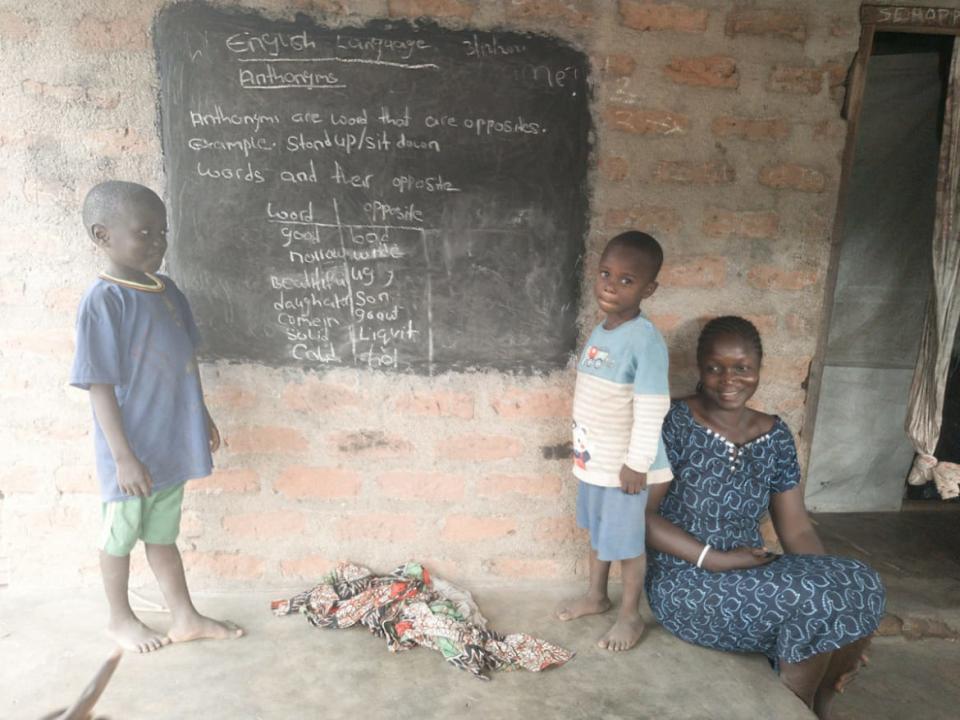
Children in the Adagom Refugee Settlement are among the top targets of traffickers.
While the victims struggle to pick up the pieces of their lives, their alleged traffickers continue to move freely. The chances that they'll be apprehended are slim, as the poorly funded agency responsible for stopping them is more than five hours away from where the refugees live, and lacks the mobility to respond swiftly.
“At the moment we are constrained within Calabar,” said Godwin Eyake, head of the NAPTIP's Cross River State Command, who admitted to The Daily Beast that the office’s response to reports regarding human trafficking in Adagom is so slow that “sometimes if we receive a call, by the time we try to get there, a whole lot of things must have transpired.”
NAPTIP is hoping that funding for the organization will improve in the future so that it can effectively tackle human trafficking everywhere in the Cross River. The agency, according to Eyake, is “considering having a desk officer in Ogoja to enable us deal with issues relating to human trafficking in the area.”
For those in Adagom, whose family members are still missing, it may be too late.
“If they can find my son, then I’ll have hope [that human trafficking can be tackled],” Amikwa told The Daily Beast. “When my son was kidnapped, I lost hope in everything.”
Get the Daily Beast's biggest scoops and scandals delivered right to your inbox. Sign up now.
Stay informed and gain unlimited access to the Daily Beast's unmatched reporting. Subscribe now.

